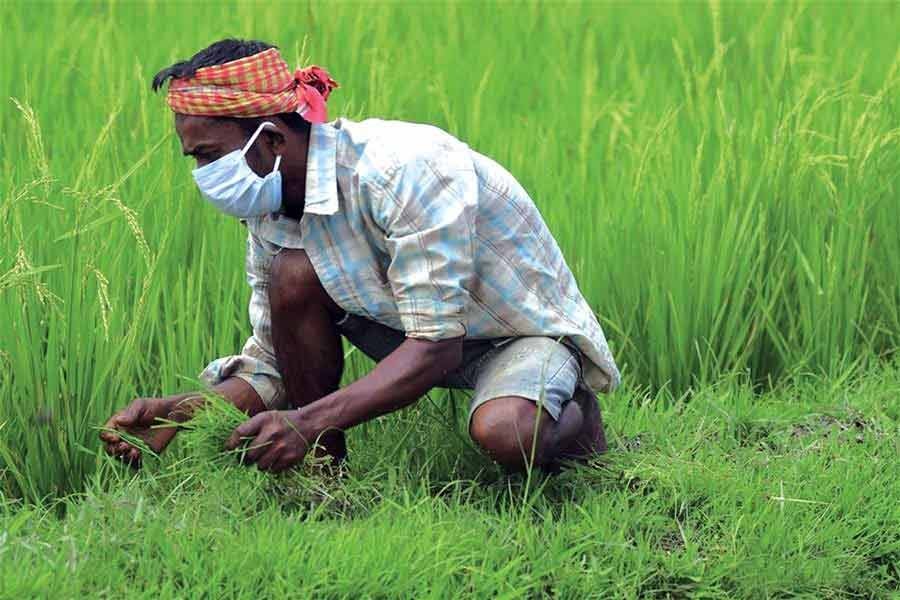The Tk 3.0 billion worth of fresh refinance money for agriculture announced by the Bangladesh Bank (BB) on Tuesday is, as expected, a welcome piece of news for the country's farmers. At the moment they are fighting on two fronts -- the Covid-19 on the one hand, and natural calamities triggered by climate-change, on the other. Apart from the handicaps attributable to pandemic-induced supply chain disruptions, farmers this year had also to suffer from heat wave in April when temperature rose to 36 degrees Celsius, which was 3.0 degrees centigrade above the normal at that time of the year. Combined with low humidity and less rainfall, it created a condition called heat-stress. In consequence, according to the Thomson Reuters Foundation, standing crops, chiefly, rice, over 68, 000 hectares of land worth Tk 3.3 billion were partially or wholly damaged. Some 300,000 farmers in 36 major rice producing districts of the country lost their crop as a result. This was over and above the crop-losses caused by other vagaries of nature including floods.
The said losses should not be looked upon as a personal misfortune for affected farmers. It is more than that. In fact, the climate-change-induced crop-loss is a threat to the nation's food security itself. As such, commendation is due to the BB for coming in aid of farmers when they are in critical need of this financial support. However, the farmers in question should deserve the highest consideration when it comes to their accessing the BB's financial package to be disbursed through the various outlets of the banks and other financial institutions.
The stimulus package is learnt to be channelled through scheduled banks to the farmers till June 30 next year. On this score, the difficulties that the interested farmers have often had to face at the loan disbursement desks merit attention of the authorities concerned. It is about the various hurdles including the tardy bureaucratic procedures that the poor farmers find it hard to navigate. Not surprisingly, it affects the pace of delivery of the much-needed money to the pandemic-hit farmers in time. Obviously, such a state of affairs irked the government and the bank high-ups in the case of previous stimulus package for the agriculture sector. Seeing that only 71.26 per cent of the entire stimulus fund of Tk 50 billion could be spent till February, 2021, the BB had to reset the original disbursement deadline of March 31 to June 30 this year. Against this backdrop, it is expected that this time the loan delivery schedule for the new BB scheme in question would not overshoot the deadline.
Hopefully, processing of the loans from this present refinancing fund would be simpler, faster and more accessible to farmers. Also, the authorities should take necessary measures to effect attitudinal changes among the banks' loan officers so that they may treat farmers with due priority when they approach them for the credit money. What they need to keep in mind is that the farming community comprise half of the country's population and contribute 13.47 per cent to the gross domestic product (GDP). It is believed that with a more proactive mindset on the part of those distributing the loan money, the cash-strapped farmers this time would be able to draw the maximum benefit from the refinance scheme.


